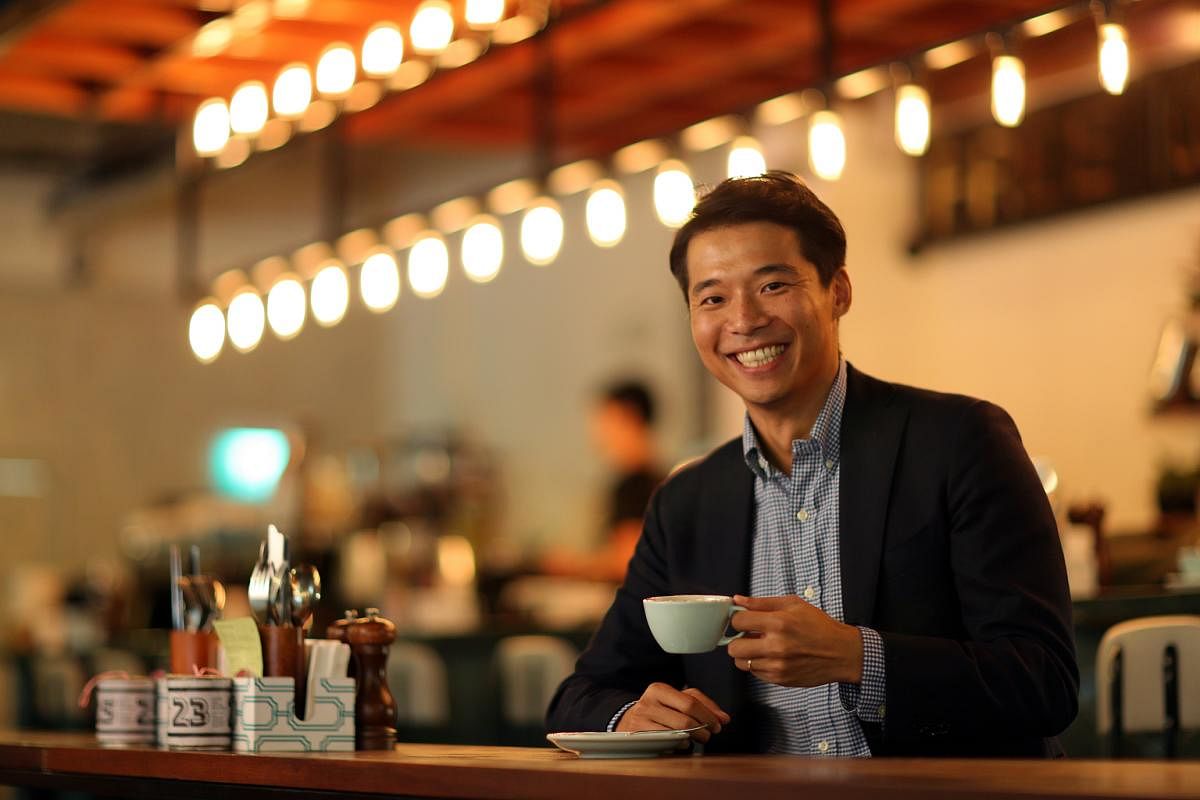-
WHAT WOULD YOUR LAST MEAL BE?
-
I would love to have tonkatsu. While I believe my region's food is the best, I do think the tonkatsu restaurants in Tokyo are better.
Foodie Confidential
Passionate about produce
As the director of a biotechnology firm, Mr Ryosuke Koike is environmentally conscious and careful about what he eats

Climbing coconut trees in the palm oil plantations of East Sabah is not something Mr Ryosuke Koike, director of Chitose Agriculture Initiative, had expected when he joined the Japanese biotechnology firm.
Mr Koike, 35, was based in East Sabah for five years to set up the company's office in Malaysia. The place was picked for being in the tropical region, which Mr Koike says has the "best natural environment for biomass production". The company is also working on projects in the palm oil industry.
He recalls with a laugh: "The closest town was a two-hour drive away and I would go there every week to stock up on produce. But if I finished my water supply, I would have to climb the trees to get coconuts for the water.
"Initially, the locals would help me. After a while, they left me to do it myself."
After his stint in Malaysia, the Kobe-born Mr Koike moved to Singapore about a year ago when the company set up its headquarters here. On its online platform, it sells strawberries and cherry tomatoes from Cameron Highlands, and delivers omakase boxes filled with fresh produce from farms in Japan. The company works with more than 50 artisan farms across Japan and in the Cameron Highlands.
So far, it has collaborated with restaurants such as Nude Seafood and the Antoinette patisserie chain to showcase its produce. Mr Koike says it aims to boost its online and retail presence, and is looking to other markets in the region such as Indonesia, Thailand and Vietnam.
Mr Koike - who has an economics degree and a master's in international public policy - has always been interested in agriculture. He is married to a Japanese housewife, 36, and they have no children.
He used to work for a Japanese printing company, which also handled traceability systems for food.
"Our energy comes from what we eat and our body is made by what we eat," he says. "Our energy source comes from plants which need sunlight to grow. The South-east Asian region is a productive area for agriculture, which is why I'm interested in the scene here."
He is not only environmentally conscious, but is also careful with what he consumes. Every morning, he drinks a cup of Bulletproof coffee - a blended concoction of coffee with butter made with milk from grass-fed cows and coconut oil. The fat-filled energy-giving beverage was created by American entrepreneur Dave Asprey after he tried yak butter tea during a trip to Tibet.
While there is no scientific evidence that it aids weight loss, Mr Koike says it has helped him to lose the pounds. He says: "A lot of people like to cut carbs, but when you use more energy, your brain and body needs the carbs. Even though Bulletproof coffee is said to have high fat content, fats can be converted to energy, so it's more important to take good fats. "
What is a major problem in the agriculture industry?
You have an old farmer producing good tomatoes, but that's only what he can grow. After that, there is no technology transfer to the next generation. This is what Chitose is trying to solve by developing technology such as hydroponics and composting systems.
What is your take on the demand for organic produce?
Nowadays, people are looking for produce that is organic, with no pesticides. But how much do people know about the reason for using pesticide? Agriculture is not manufacturing. It is natural for insects to attack crops, for natural disasters and disease to happen.
Using pesticides is a way for farmers to reduce their risk, for them to survive. Consumers need to understand this.
At Chitose, we do not focus on organic farming. Most of our produce may be organically grown, but we do not push for certification.
We use pesticides that are recognised under the organic standard, but we also use natural predators such as mites. The mites attack the insects and not the plants. This is also a tiny step we are taking to improve agriculture in South-east Asia.
Why choose to open an office in Singapore?
It is a leading country in South-east Asia and people here care about what they are eating. They want to know how things are grown, who the grower is and the benefits of the food.
What are your favourite hawker foods?
I love to eat chicken rice, fried Hokkien mee, char kway teow and bak kut teh.
Where are your favourite coffee haunts?
I like the coffee from Chye Seng Huat Hardware in Tyrwhitt Road, Dutch Colony Coffee Co in Frankel Avenue, Common Man Coffee Roasters in Martin Road and Brawn & Brains Cafe in Guillemard Road.
Where are your favourite Japanese restaurants?
For yakitori, I go to Shirokane Tori-Tama at Robertson Walk and for tonkatsu, I go to Ma Maison restaurant at Bugis Junction.
Do you cook?
Yes, simple food such as ramen or fried rice, but only for my cheat days when I eat more carbs.
Do you have any indulgences?
Previously, I didn't really eat cakes and desserts. But since I started doing marketing for Chitose's strawberries, I've had to meet chefs and need to eat their cakes. I do feel guilty, but it is part of my job.
For more Foodie Confidential profiles, go to http://str.sg/4MbD.
Join ST's Telegram channel and get the latest breaking news delivered to you.
A version of this article appeared in the print edition of The Sunday Times on January 08, 2017, with the headline Passionate about produce. Subscribe

